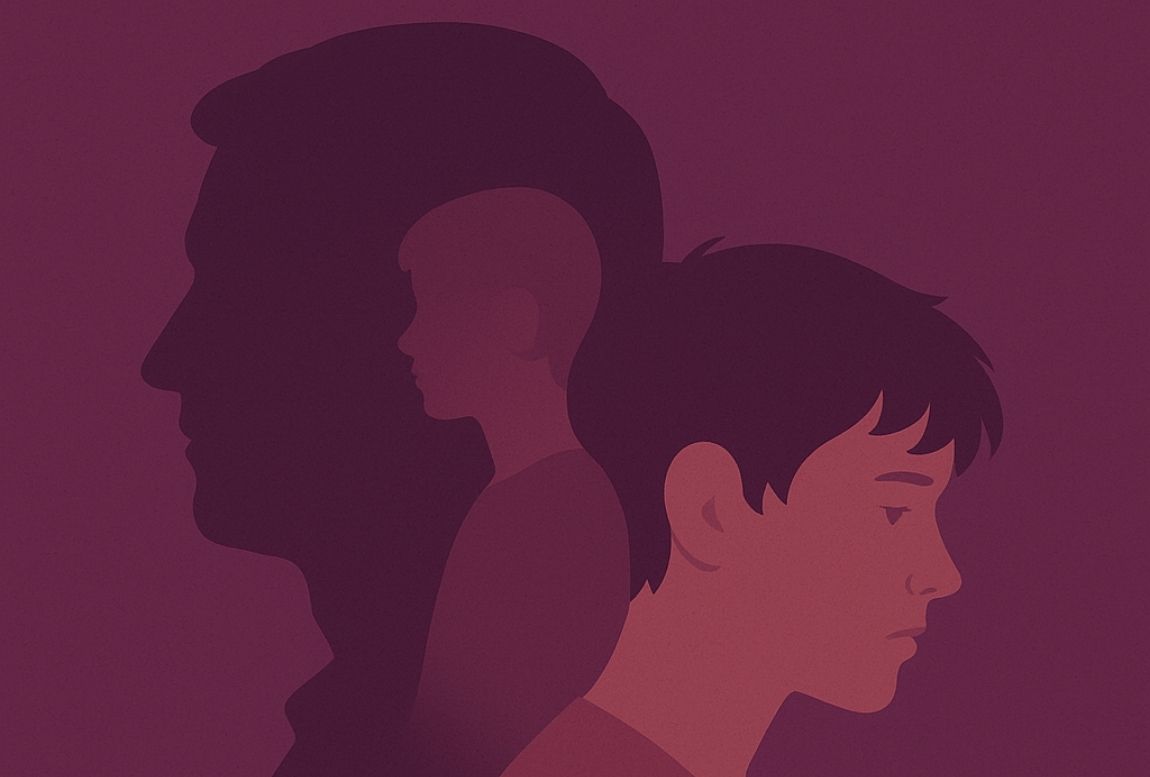How adolescent experiences shape adult emotional patterns

Think back to your teenage years. Maybe you remember a moment when someone made you feel small. Or a time you felt invisible. Or maybe you felt loved, supported, and seen. Now notice something: some of the feelings you have today as an adult feel strangely similar, don’t they?
That’s because what happens in our teenage years doesn’t just stay there. It often follows us quietly into adulthood and shapes how we react, how we love, and how we see ourselves.
In this blog, let’s talk simply and gently about how teen experiences shape adult emotional patterns, how you can notice them, and what you can do to feel better.
Why the Teen Years Matter So Much
The teenage years are a special time when everything is changing at once.
- Your feelings are bigger
- Your relationships feel important
- Your brain is learning fast
- Your sense of “who am I?” begins to form
During this time, your brain is like soft clay. Every experience makes a small mark — sometimes a big one. (ncbi.nlm.nih.gov)
So if a teen felt supported, safe, and understood…
they may grow into an adult who trusts people easily.
But if a teen felt ignored, judged, or unsafe…
they may grow into an adult who guards their feelings or avoids conflict.
Not because they’re “weak.”
But because the teen inside them learned to survive that way.
How Teen Experiences Turn Into Adult Emotional Patterns
Here are some simple examples that happen to many people:
1. Feeling the Need to Please Everyone
If you spent your teen years trying hard to “fit in” or avoid being left out, you might still find yourself saying “yes” even when you want to say “no.”
2. Trouble Trusting People
If someone betrayed you as a teen—friend, parent, partner—you may still hesitate to open up as an adult.
3. Getting Very Upset Over Small Things
Teen emotions are intense. If you weren’t taught how to handle them gently, adult triggers may feel just as big.
4. Avoiding Feelings Altogether
If expressing feelings wasn’t safe in your teen years, you might now shut down, stay quiet, or “run away” emotionally.
5. Needing Constant Approval
If teen-you was judged or compared often, you might still look for reassurance more than you’d like.
6. Fear of Being “Too Much” or “Not Enough”
Many adults don’t realise this feeling began in middle school or high school.
These patterns don’t mean anything is “wrong” with you. They simply mean your teen years still live quietly inside your reactions.
Signs You’re Carrying a Teen Pattern Into Adult Life
You might notice things like:
- “Why do I react like a teenager sometimes?”
- You get upset quickly, then confused why.
- You repeat the same relationship problems.
- You feel sensitive to rejection.
- You feel stuck in habits you don’t understand.
- You hear a teen-like voice inside saying “Don’t trust” or “Don’t speak.”
If this sounds familiar, you’re not alone. Many adults carry teen-self patterns without realising.
How to Change These Patterns Gently
Changing an emotional pattern is not about blaming your past.
It’s about understanding it and caring for it gently.
Here are simple steps:
1. Notice the Feeling
Instead of saying “Why am I like this?”
Try “Oh… this feels like something old.”
This softens the reaction.
2. Talk Kindly to Your Teen-Self
You can say to yourself:
“You went through a lot back then. You don’t have to react the same way now.”
It sounds simple, but it works.
3. Journal Small Moments
Write down when you feel triggered or sensitive.
Notice: does this feel like something from your teenage years?
4. Practice a New Response
If your old pattern was shutting down, try speaking one small sentence.
If your pattern was pleasing others, try saying one small “no.”
Small steps matter.
5. Share With Someone You Trust
Talking about it makes the pattern less heavy.
6. Seek Support When It Feels Too Strong
If you notice certain patterns repeat again and again, support can help you break them gently and safely.
What Kind of Support Helps?
When adulthood feels shaped too strongly by teenage pain or confusion, support can help you untangle it.
Gentle Psychological Counselling can help you understand:
- Where the pattern started
- Why it still shows up
- How to respond differently today
- How to build new emotional habits
And if you want more ongoing guidance, a Personalized Therapy Care Plan can help you work through deeper patterns step by step.
Both support options can help your adult-self feel stronger, safer, and more understood than your teenage self ever did.
Conclusion
Our teenage years leave marks — some soft, some deep. But none of them have to control your adult life.
When you understand where a pattern comes from, you can change it with patience, kindness and support.
If you feel like your teen-self still shows up in your adult reactions, you don’t have to figure it out alone.
At SoulNirvana, our Psychological Counselling and Personalized Therapy Care Plan offer a warm, safe place to explore these patterns and gently create new ones.
You deserve to feel free, steady, and understood — both by others and by yourself.
If you ever want support, we’re here for you.
FAQs
1. Can teenage experiences really affect adult emotions?
Yes. Teen years shape your beliefs, habits and reactions more than we realise.
2. Do all patterns come from negative teen experiences?
No. Even neutral or positive experiences can shape emotional habits.
3. Can these patterns be changed?
Yes, with awareness, small steps, and sometimes a bit of support.
4. When should I seek help?
When a pattern feels too strong, confusing, or keeps affecting your daily life or relationships.
References
- “Emotional Development: Adolescence.” Britannica.
- https://www.britannica.com/science/emotional-development/Adolescence
- “The Developing Adolescent Brain.” NCBI.
- https://www.ncbi.nlm.nih.gov/books/NBK545476/
- “Adolescence and Emotional Learning.” Psychology Today.
- https://www.psychologytoday.com/us/blog/lifetime-connections/201908/how-adolescence-shapes-your-emotional-life

Ms Sonali Sikdar
Ms Sonali empowers individuals to grow, heal, and align their careers with their inner calling.
Related Blogs
No related blogs available.

